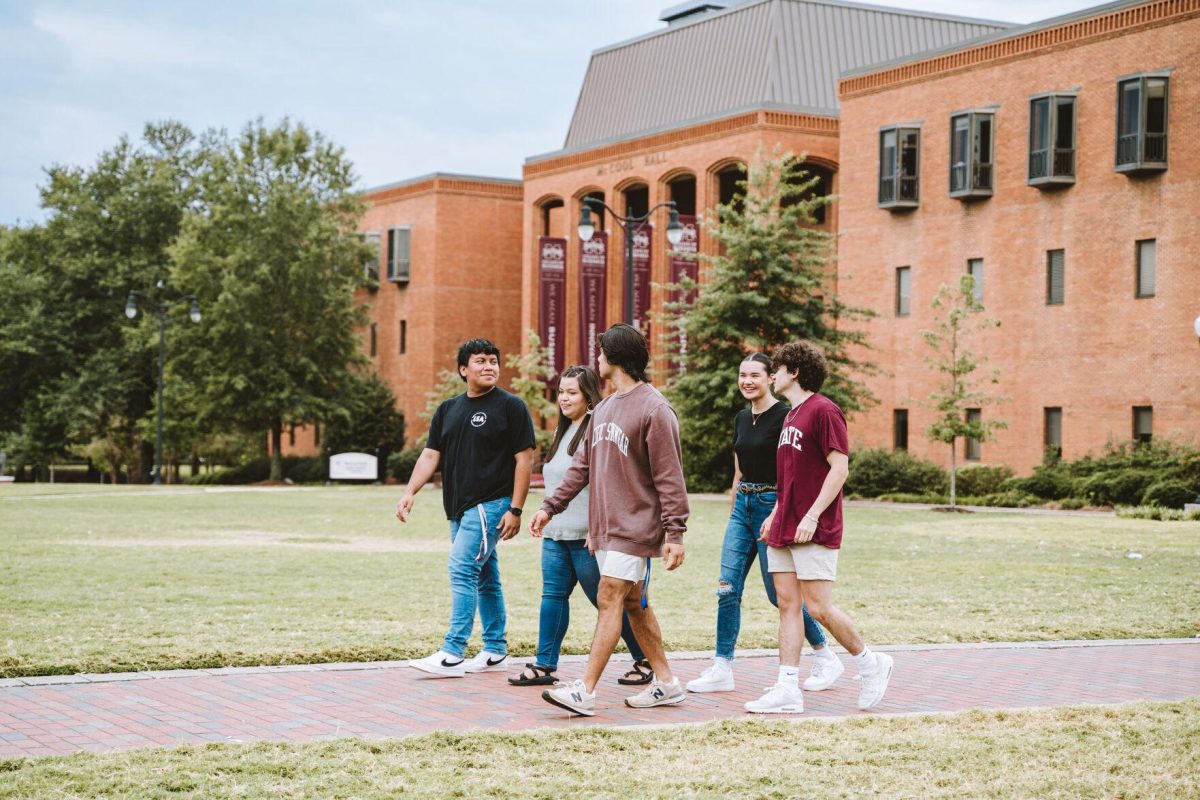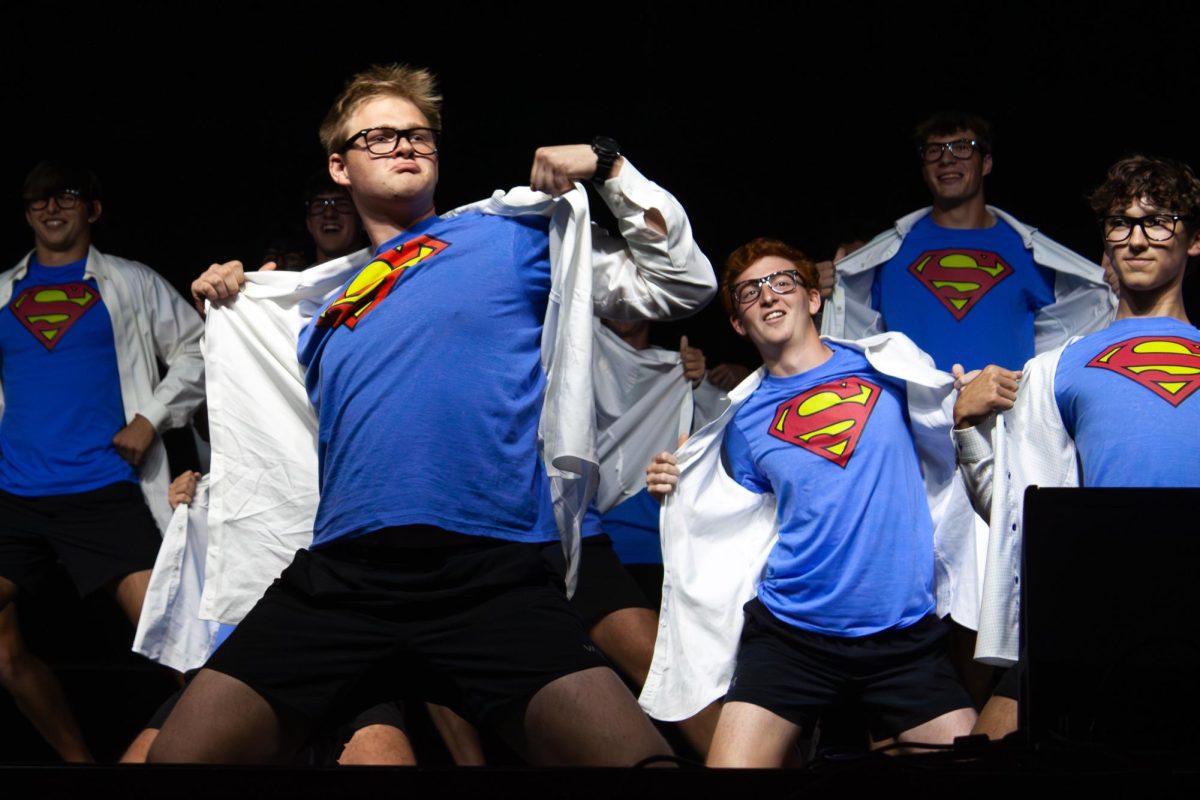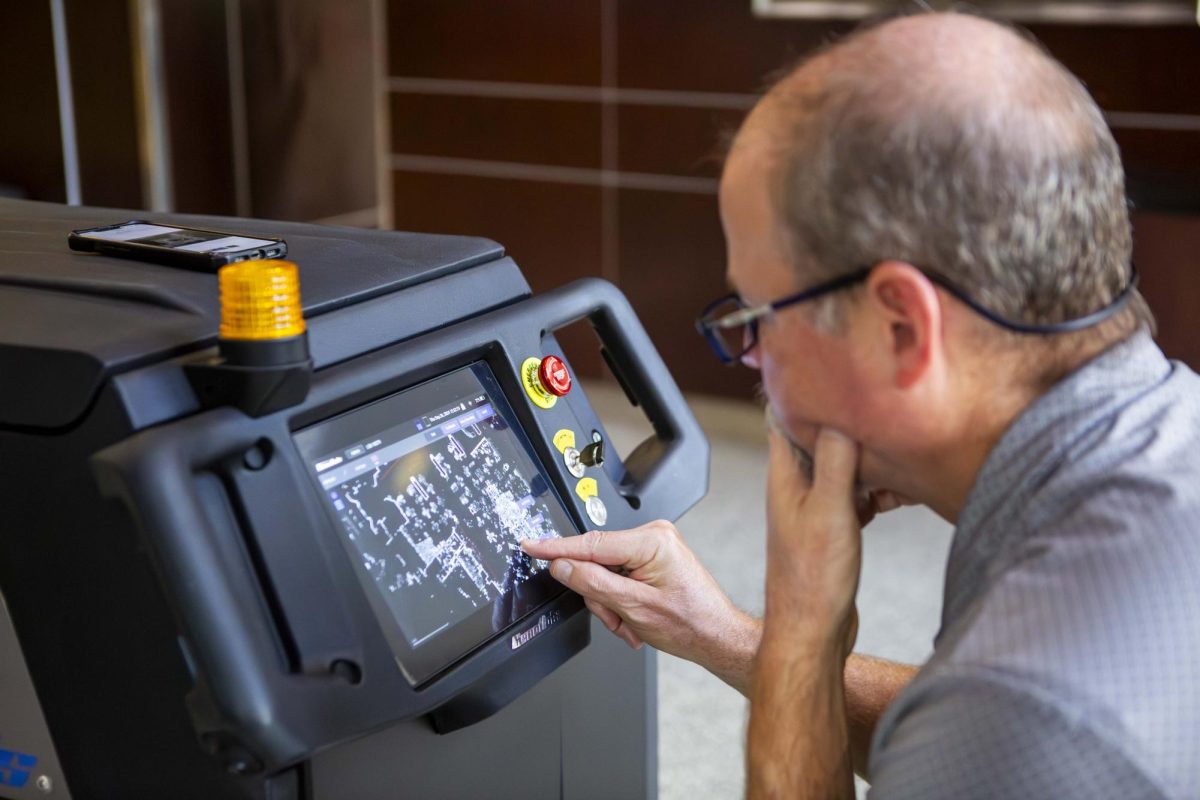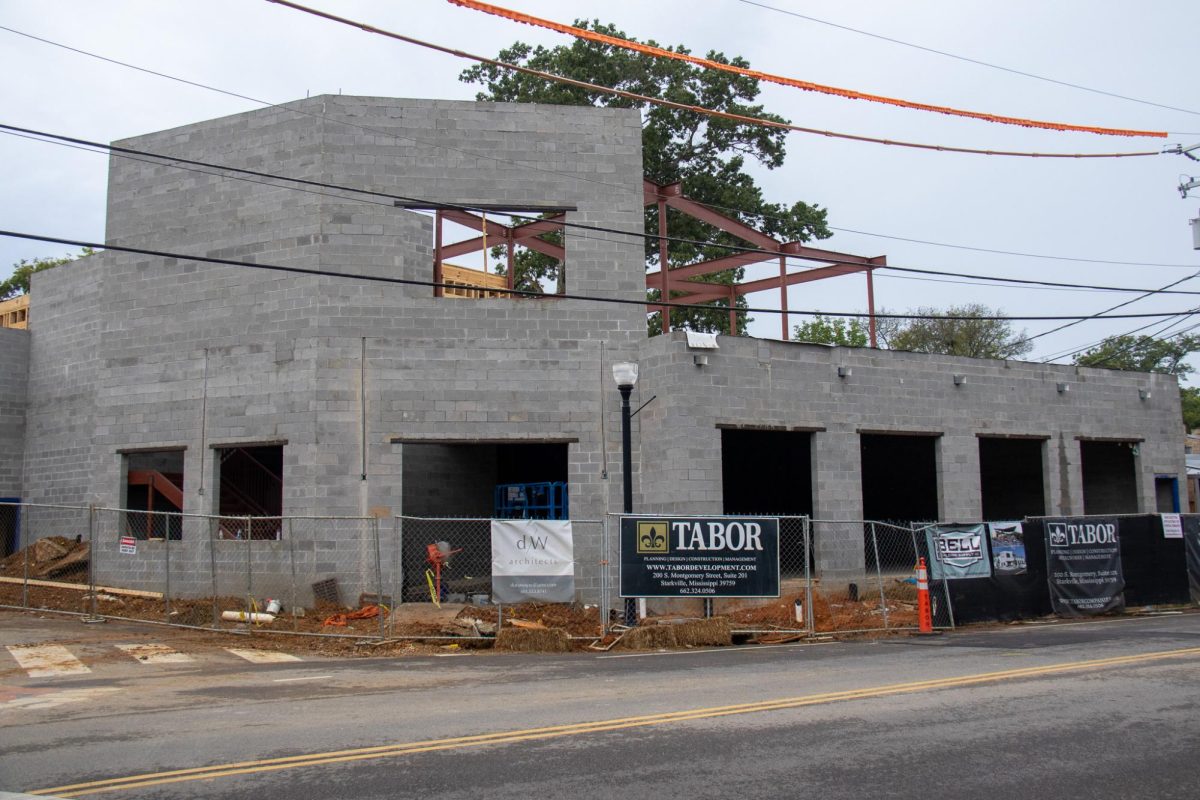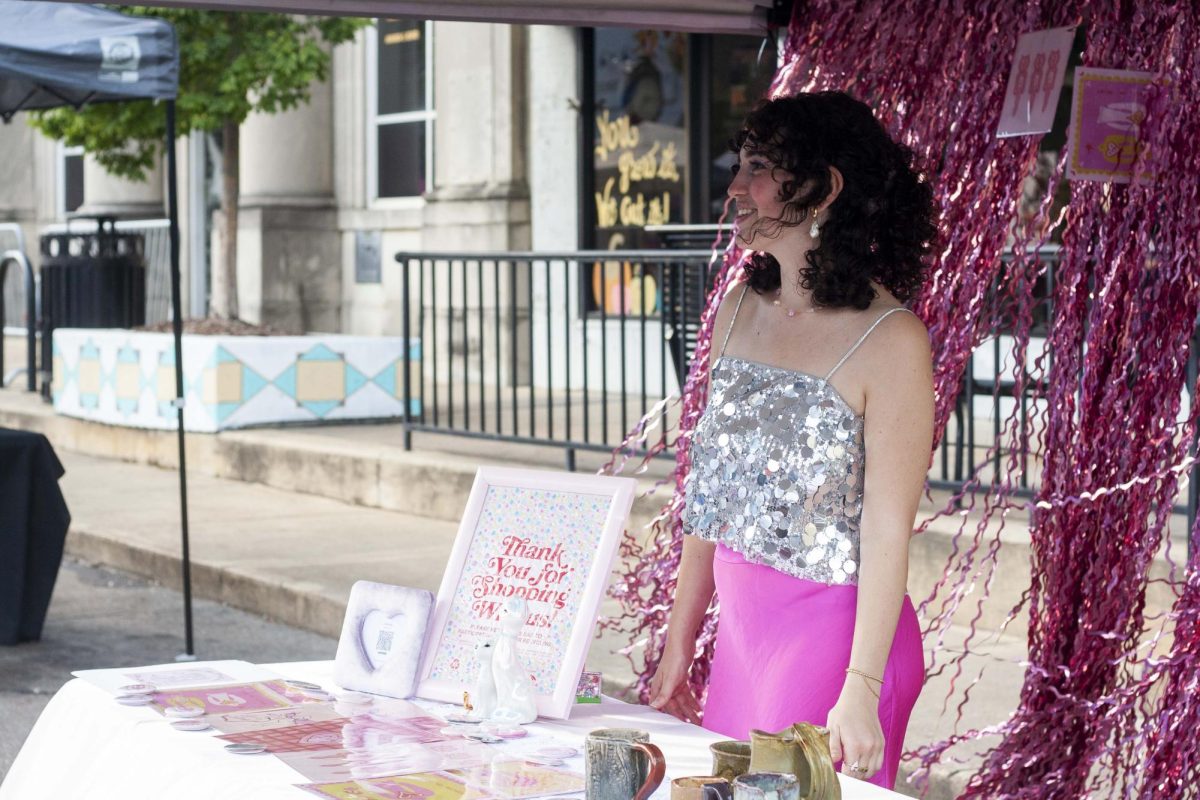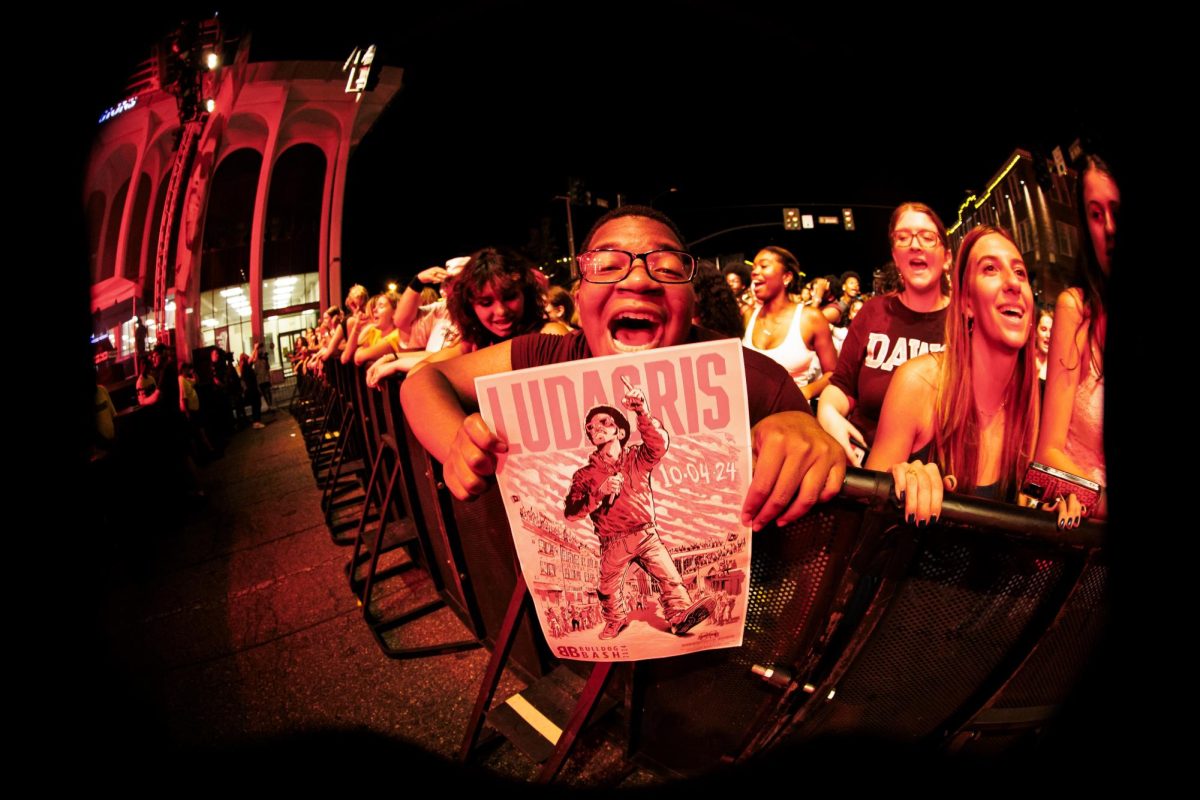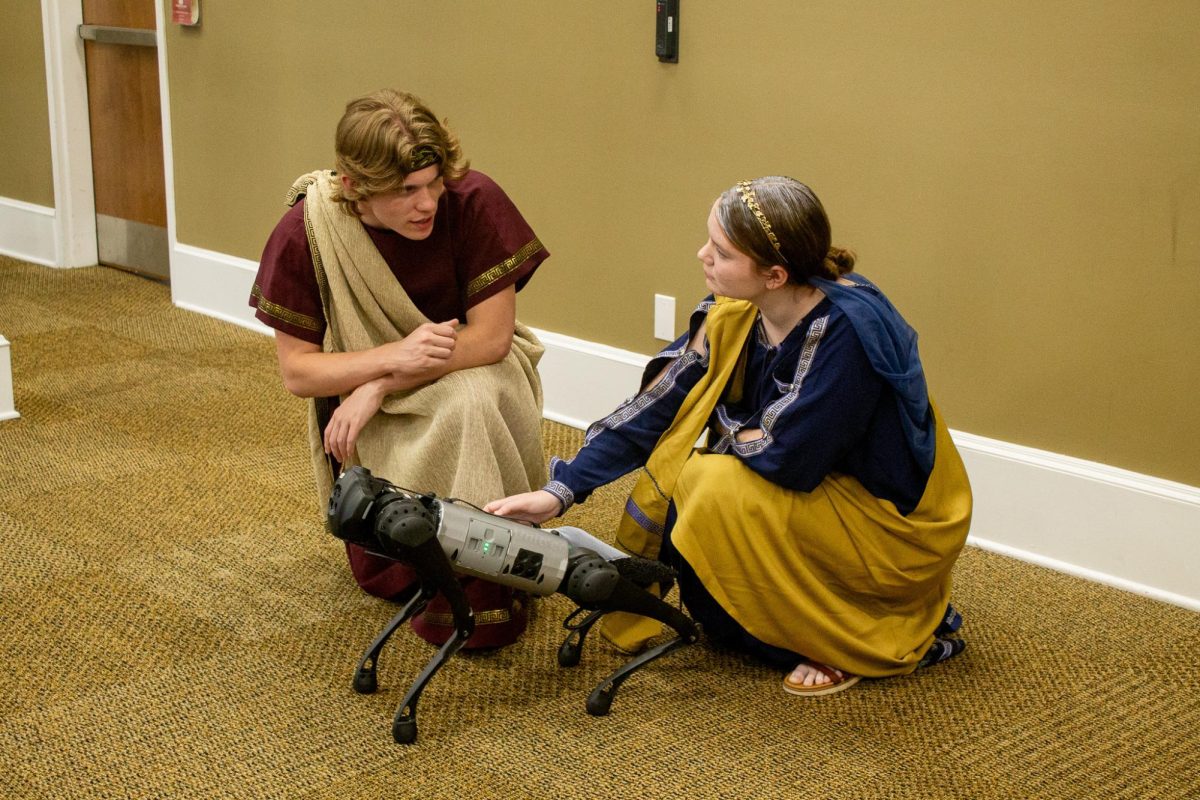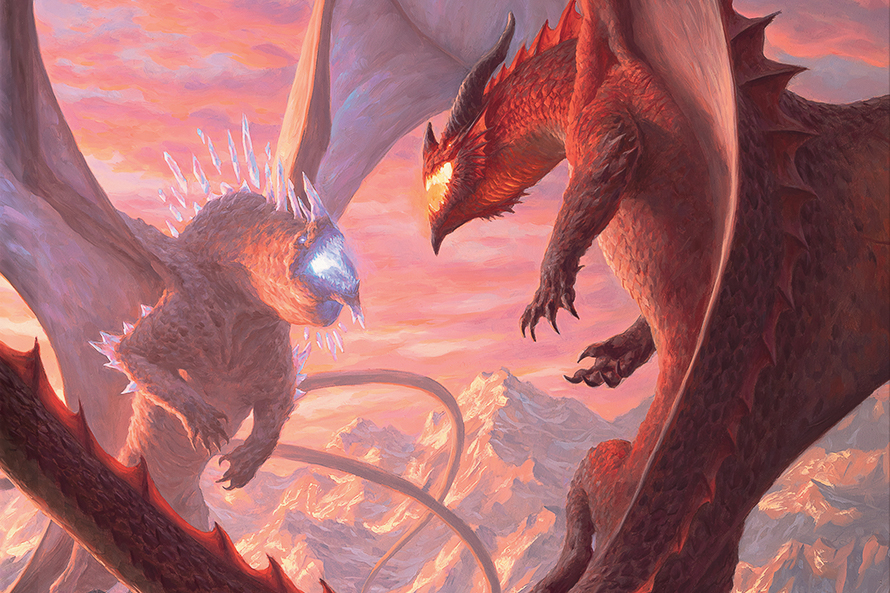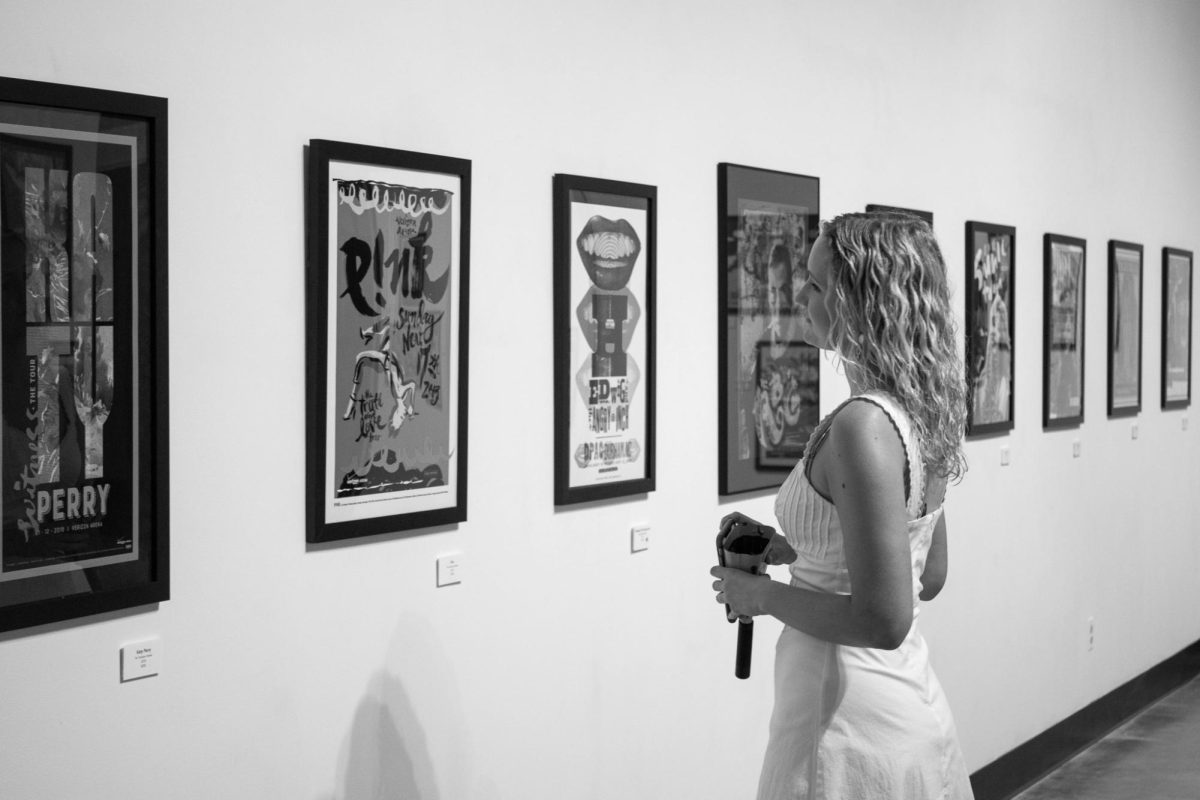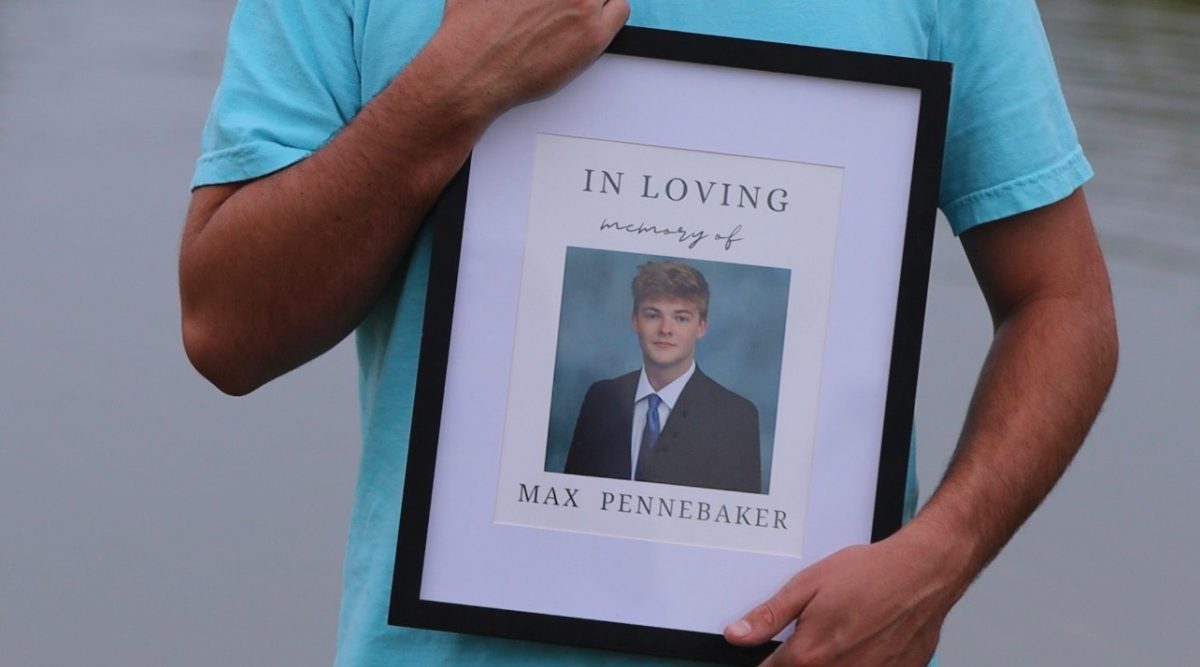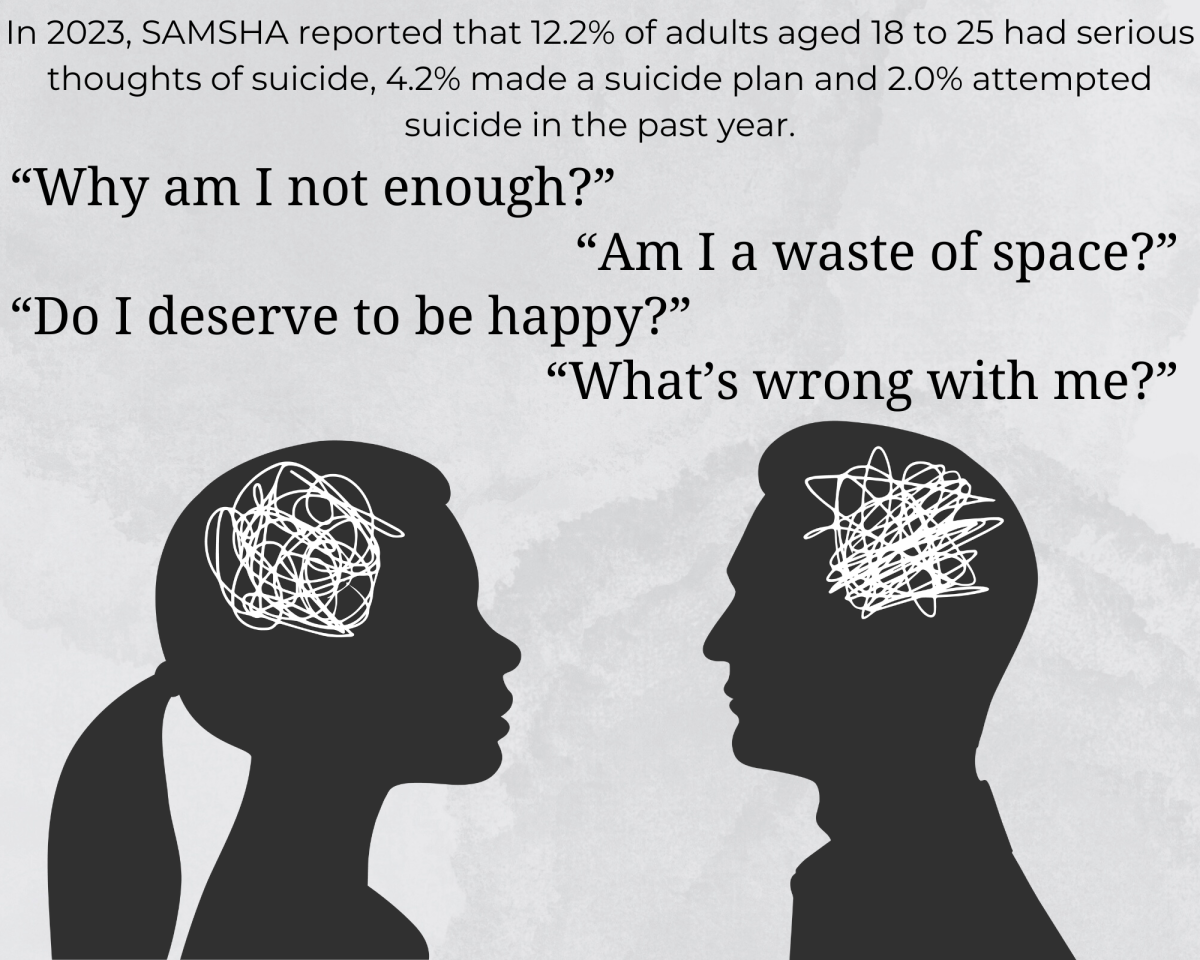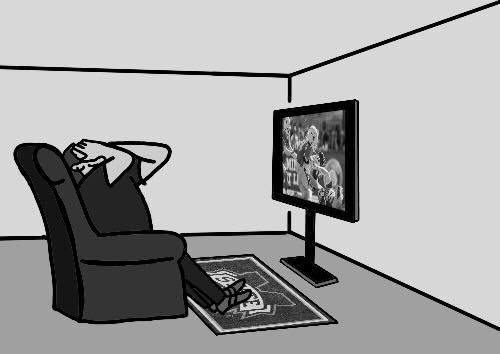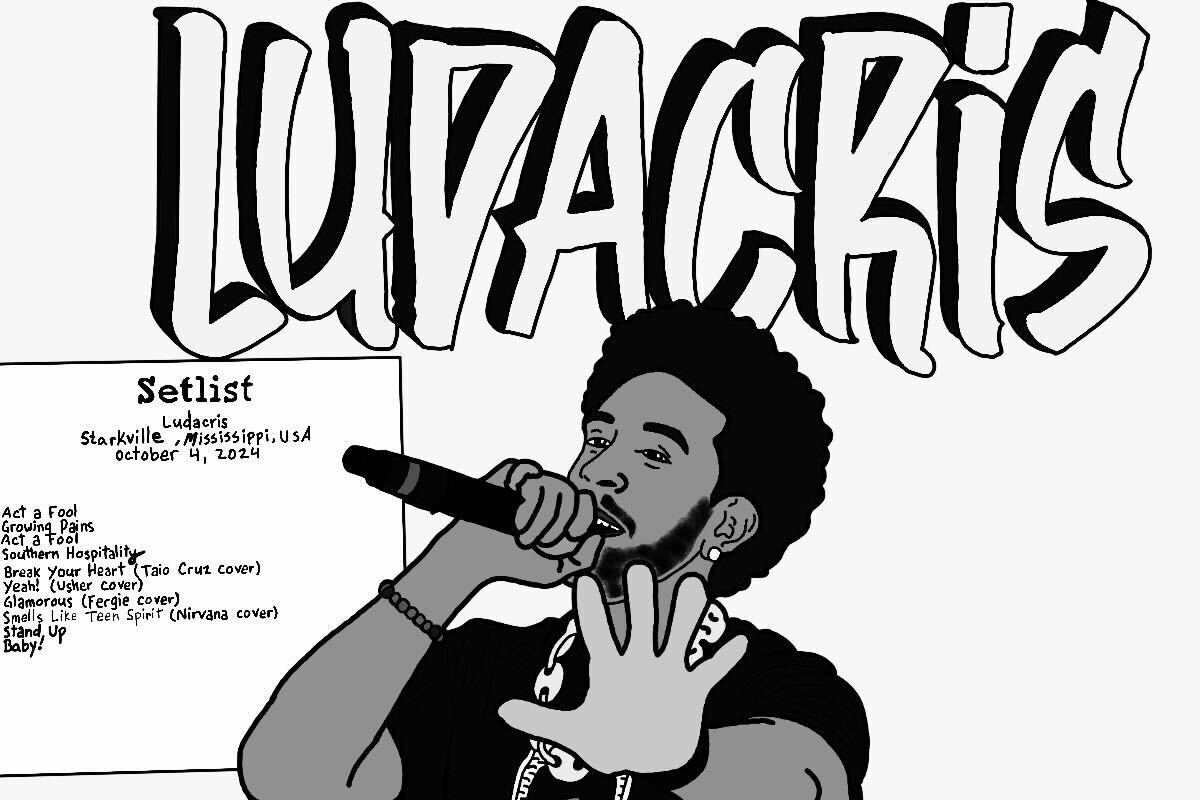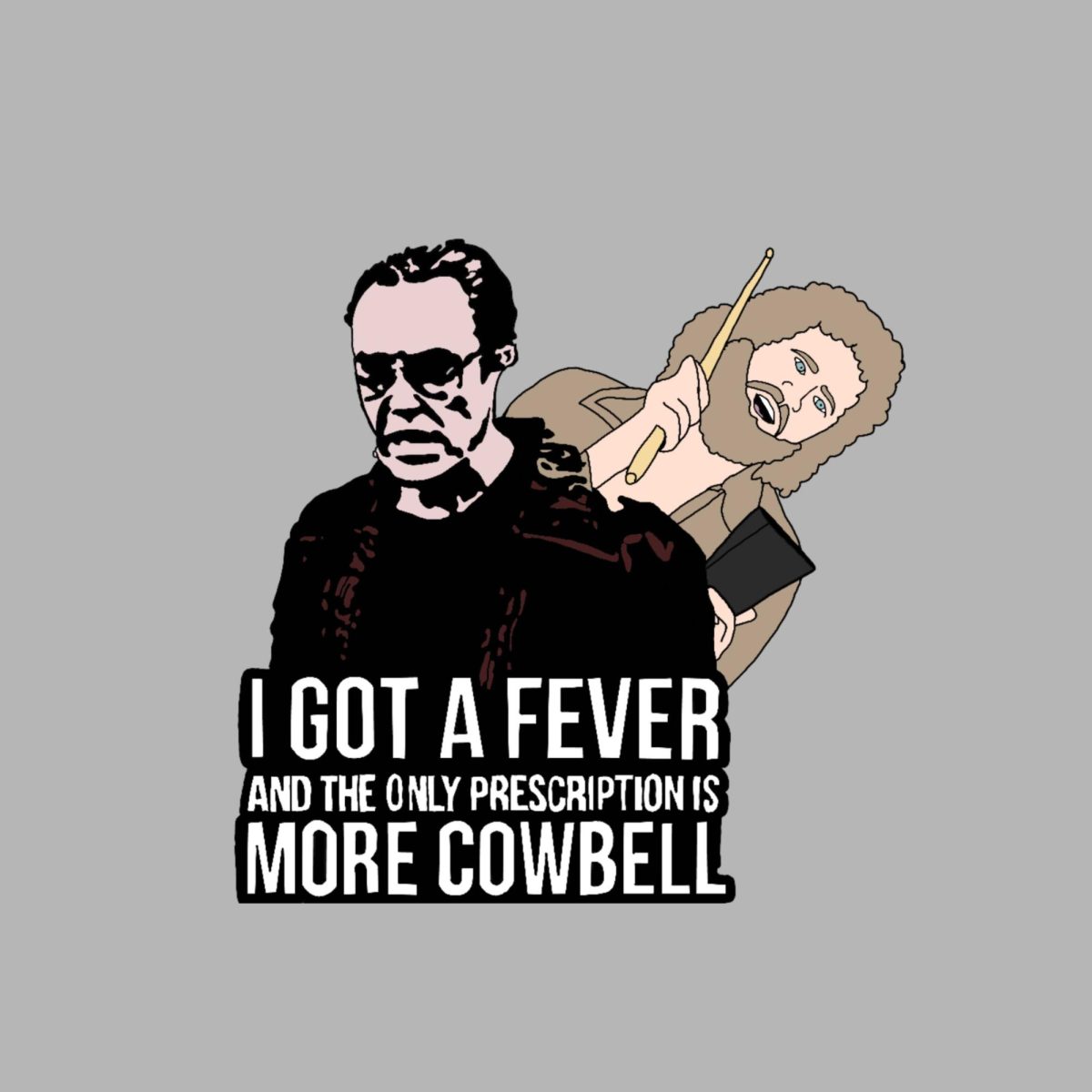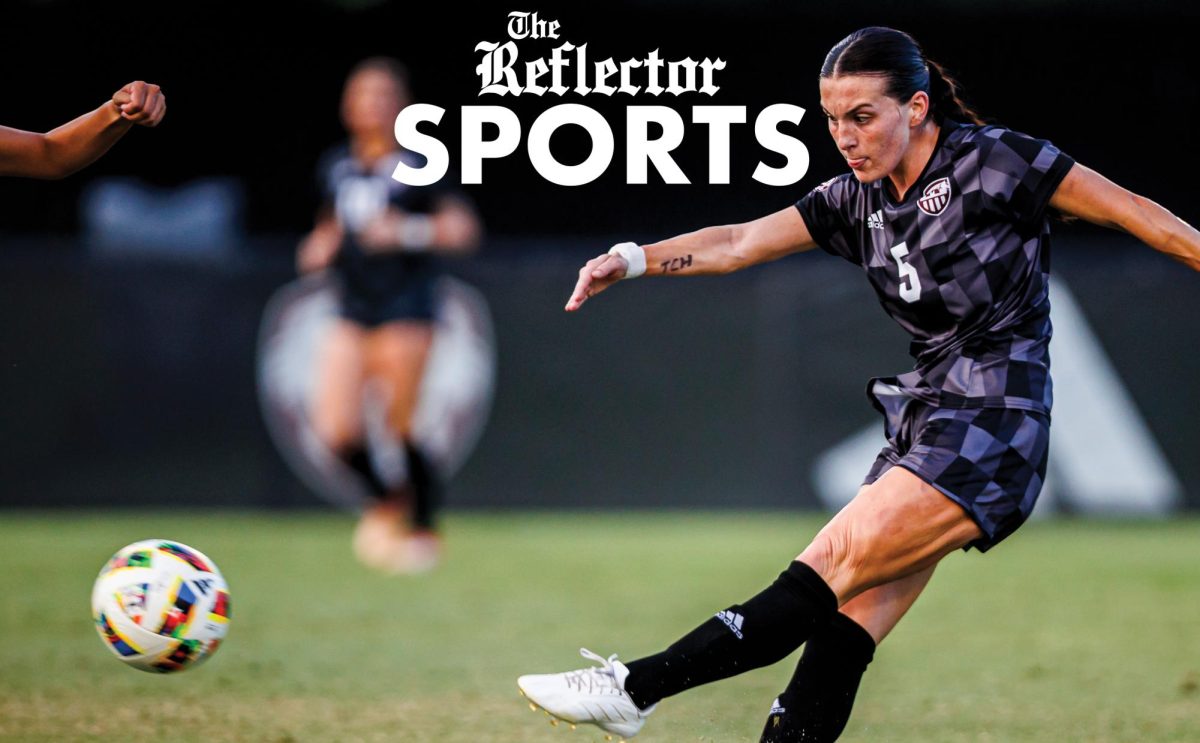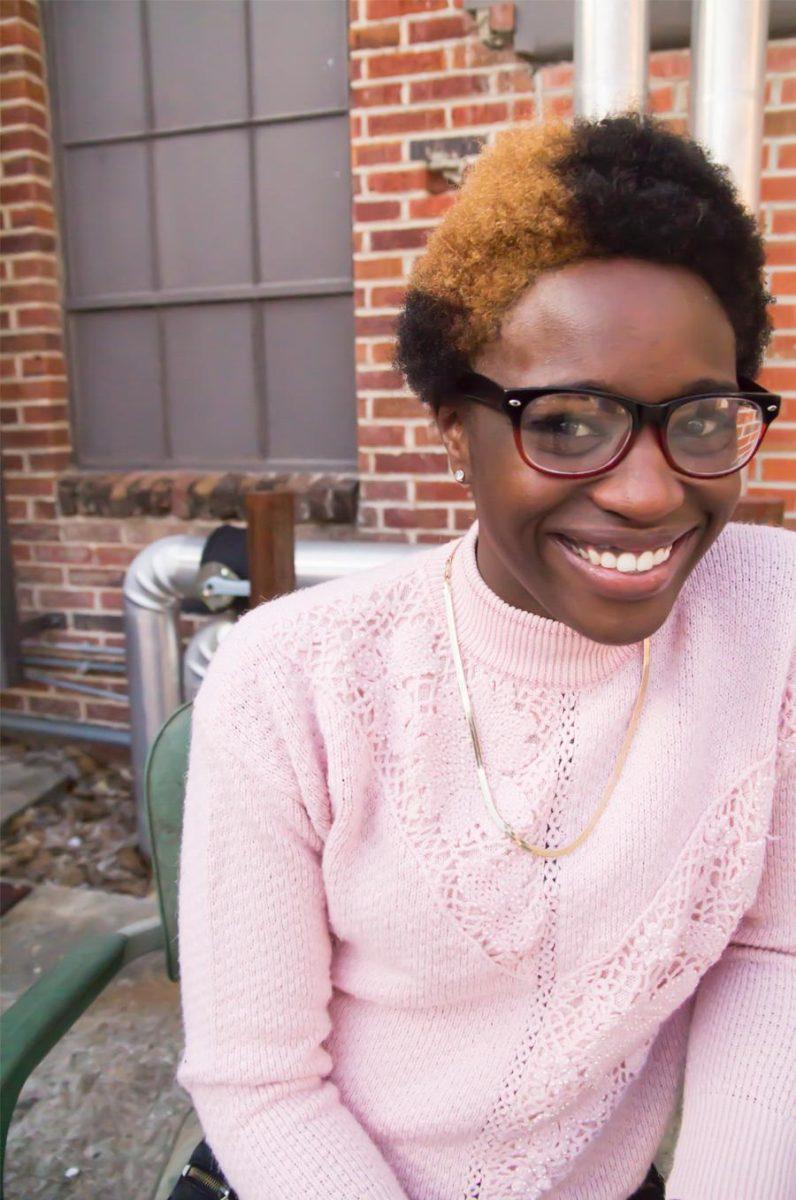After a car accident on March 21, 2012 and the death of a close friend earlier in August, Mississippi State University students Erisse Peterson and Ariel Terrell realized they had a purpose. As artistic beings, the two friends understood that, at any day, their talent could be wasted.
“We were freshmen. We weren’t the best students. We were a bit unfocused. We had lost a friend that August. It was a lot building up to that date. We want to show that after two years from that day, where we are now in comparison to where we were,” Terrell, a sophomore communication major, said.
Within those two years, Peterson and Terrell said they hope to premiere a feature documentary and web series titled “Dark Horse,” showcasing young Mississippi artistic talent, on March 21, 2014.
After uploading a teaser featuring selected Mississippian artists on YouTube on Nov. 14, 2012, the trailer gained attention with almost 2,000 hits and from major producer, Sam Haskell, Jr. After picking up the project, he now serves as the executive producer and director of photography while Peterson and Terrell serve as director and producer.
Peterson, a sophomore philosophy major, said her interactions with friends from a hip-hop collective called TFG inspired her to tell the stories of artists in Mississippi who were simultaneously pursuing a college degree as well as their dreams and ambitions.
“By following TFG, it kind of spawned into something else that grew into ‘Why not open this up to the whole state?’ Because I’m sure there are plenty of people in the same position of TFG that want to be recognized for their art,” Peterson said. “And I know how hard it is to be recognized in Mississippi.”
Peterson said she wants to give young artists an avenue and a way of showcasing their talents as well as changing people’s negative perception about art in Mississippi.
“A lot of people think that we are still behind. And we want to change people’s view and show people that you don’t have to live in L.A. or New York to be talented or to have talent. That exists here in small towns,” Peterson said.
In comparison to the past, Terrell said she feels art in the South is currently ignored. She said art becomes a pastime instead of a passion.
“We are so based in agriculture and trying to advance to catch up with everybody else industrially that art kinda gets pushed to the side so much. Art is in everything – in architecture, to being a speaker,” she said.
Because of the conservative viewpoints often held by Mississippian natives, Terrell said art is not as treasured as other professions. Once shy, Terrell did not speak as much until she gained confidence through theatre.
“Art shouldn’t be ignored because to catch up in communications, you have to know how to speak. The lifestyle you are thought to have isn’t so good. It isn’t so promising in the future, so that’s why we might think of it more conservatively,” she said. “Like you might need to go into nursing, and you can sing in the church choir. Or, you know, you need to go be a lawyer instead of an architect.”
Peterson said because there isn’t much in Mississippi, artists are more driven to focus on art as a pastime. She said art provides an escape.
“It makes (artists) feel like they are being involved in something much bigger than their current situation,” she said. “Art in general does that for a lot of people no matter where you are. It can take you into a whole different world and a whole different mindset.”
Launching the documentary in Mississippi, the friends said they hope to expand the film to other states, but for now, Mississippi remains their primary focus.
“We want to start ‘Dark Horse’ in Mississippi because Mississippi is one of the, by far, most ignored states, artwise. Through the success that we plan to gain in Mississippi, we want to go to these other ignored states like Wyoming and Idaho,” Peterson said.
“Or Alaska!” said Terrell, laughing. “But we want Mississippi to be that home base with where we are starting and where we are going to take off from.”
Peterson said she wants to change people’s negative perceptions of Mississippi and the artistic community held in Mississippi. Originally from California, Peterson said she was scared to move to Mississippi because of her perceptions that the state was still stuck in “1930s” way of thinking.
“I was just completely nervous. But when I got here, and I got to school and started meeting all these people, I grew to love Mississippi as a state. I grew to appreciate it. I want to give people that same awakening that I had,” she said. “All of my family back in California, they think it’s crazy that I live here. But I want them to see, no, there’s more to Mississippi. There is so much potential and so much talent.”
As a native from Arizona, Terrell noticed the hospitality when she moved to Mississippi at the age of seven. Terrell saw people waving at her, leading her to ask her mother, “Do we know them?” She said one of her favorite cultural aspects of Mississippi involves the traditions still around today.
“I didn’t say ‘yes ma’am’ and ‘no ma’am’ and stuff like that before I moved here. My mama is from New Orleans, so she grew up off of that, but I didn’t because I was born in Arizona. Those traditions that stand strong, and that aspect of ‘respect yourself, respect others and make sure your family is respected,'” she said. “Those disciplines and those qualities that are instilled in Mississippi are the most beautiful thing.”
Artwise, Peterson said, the South produces art that possesses a certain quality that differs from art on the West Coast.
“There is a certain je ne sais quoiabout the art and artistic style down here that you can really differentiate from other types of art. I noticed that just going to the Mississippi School of Arts with the different people that we met and the different artists that we were around on a daily basis, it was easier to become more aware in a sense. I love that. I think southern artists are beautiful, and they need to be recognized,” she said. “There are a lot of southern artists that play a huge part in art as a whole, but a lot of people don’t know that. We just kind of want to wake the world up to that.”
After a statewide hunt for talent, Peterson and Terrell said they have physically met with some artists but still accept submissions via email. Currently, the two are in the process of screening and casting Mississippian artists between the ages of 16 and 25 who are actively pursuing an artistic career.
As with most colossal creative endeavors, funding the project became a problem because as broke college students, Peterson said producing the film without funds becomes a major issue.
“At a point, we thought we would have to put this off until we could find grants or jobs to help us pay for things like cameras, transportation and lodging. Because that’s a lot of money,” she said. “We were thinking about postponing it until something greater came along. That happened. The minute we had those doubts, Sam Haskell, Jr., kind of comes out of nowhere.”
“Yeah, this Popeyes check was not going to cover everything,” Terrell said, laughing.
Sam Haskell, Jr., son of hit producer Sam Haskell from Amory, Miss., gives the two creative control over the filming process.
“He’s letting us keep ‘Dark Horse’ as ‘Dark Horse,'” Terrell said.
Terrell said meeting new artists has been the greatest experience so far.
“It’s great hearing new artists’ stories and hearing why they do it, how they do it and where they want to go with it,” she said.
Relating to the artists has been one of Peterson’s favorite experiences.
“The sense of reciprocity there and also thinking about the opportunities that can come of ‘Dark Horse’ and hearing people’s stories and being, ‘Well, that was just like my story,’ and being able to relate to these artists and thinking about the possibilities of what could happen once this project is brought to life is possibly the most exciting aspect to everything. Like, whenever we talk about it, we get excited,” Peterson said laughing while Terrell grinned. “It’s being able to relate to everything we’ve heard at this point and seeing how positive this can be for people.”
Jared “Pell” Pellerin, junior undeclared major and hip-hop artist, participated in the documentary. After Hurricane Katrina, he moved to Mississippi. He said he was not a big fan of the state at first, but the hospitality changed his mind. Like Terrell and Peterson, Pellerin, another artist featured in “Dark Horse,” said art is viewed in the South as a hobby and not as a means of living.
“Without a mainstream market, we won’t be able to keep our ships sailing,” he said. “But there is hope for the stigma of art being less of a career when the people put on shows such as Super Bulldog Weekend, and any other festivals hosted around the state.”
Pellerin said Peterson and Terrell have worked hard to ensure “Dark Horse” respects the art while pushing people to get to know the actual artist.
“I also feel as though there are people who will see this and become inspired to follow whatever passions they hold dear,” he said.
With his masterful mash-ups heard all around Starkville and a Red Bull Thre3style University competition under his belt, Philip Vanderleest (DJ GLOTron), alumnus of MSU, participated in the documentary after being interviewed and filmed for the “Dark Horse” trailer. He said people look to Mississippi in respect of musical background and the documentary should have some impact.
“So taking that and pushing it into what it is today should spark something. Somebody is going to love it. If anything, it’s just a testament to be like, ‘This is who we are. This is what we are doing. Like it. Love it. Hate it. Respect it,'” he said.
Dedicated to their friend they lost in August of 2011, Jeffrey “Pooh” Jenkins, the project serves as a reminder to all who loved Jenkins to keep pursuing what they love: art.
“He was actually a rap artist himself,” said Terrell. “I won’t say he wasn’t taken before his time, because when it’s your time, it’s your time. But he was on his way up. We don’t want his work and all the other effort he put into it that we saw, and let it go to waste.”
Peterson said Jenkins’s death affected a lot of people and made them fall out of love with music and art. Through “Dark Horse,” she wants to give extra momentum and motivation to those talented artists.
“When something unfortunate like that happens, you start to lose that drive, and you start questioning a lot around you. You start having your own doubts,” she said. “We want to uplift everyone’s spirits and give them the push that they need.”

